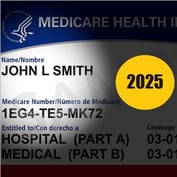Obama administration officials spent eight years shaping the health insurance regulatory landscape to their liking.
Related: 2016 health insurance outlook: 10 new predictions
Now, Republicans are moving in with their own ideas of what to plant and what to prune.
Rep. Tom Price, an orthopedic surgeon from Georgia who was picked to be President-elect Donald Trump’s nominee for Health and Human Services secretary, described his vision for the health policy garden this way: “Ahealth care system that works for patients, families, and doctors; that leads the world in the cure and prevention of illness; and that is based on sensible rules to protect the well-being of the country while embracing its innovative spirit.”
Related: How HHS secretary contender Tom Price might replace the ACA
Any existing laws, programs or products that survive their shears should be hardy enough to bloom for years to come.
Here’s a list of 10 products and services that might bloom in 2017, based on the changes in Washington, and the underlying demographic and health trends:

Tom Price spoke at a National Association of Health Underwriters conference in February. (Photo: Price’s office)
1. Federal health official conversations
This has been a tough eight years for agents and brokers who want to know what’s really going on in Washington. Obama administration officials did not talk to them much, and what they said seemed to come from scripts written by happy robots.
Mike Pence, in contrast, has spoken at events set up by the Indiana State Association of Health Underwriters and the National Association of Insurance and Financial Advisors chapter in Richmond, Indiana.
Tom Price appeared in February at a National Association of Health Underwriters conference in Washington.
Chances are federal health agency officials will talk to agent and broker groups more often in 2017, and talk about what’s on their mind, as opposed to what C3PO told them to say.

Congress might want to show older Americans it cares about them. Without spending much. (Photo: Thinkstock)
2. Senior market nibbler products
During the general election campaign season, Trump said he would protect Medicare benefits. But neither he nor Clinton talked about creating big new health programs for seniors.
The clash between the urge to help and the fear of new spending could breed senior market program proposals that are flash but cheap.
Seniors might need the government to create a public reinsurance program for private long-term care insurers, to help nurse that industry back to life. What seniors might actually get could be cheaper consolation prize options, such as a new tax break for long-term care insurance premiums that is narrower than it sounds, or Medicare mobile health device benefits.
Related: 5 Senate Finance chronic-care proposal basics

Writing dental insurance may be a much lower risk proposition in 2017 than trying to guess how the major medical market will work. (Photo: iStock)
3. Gap-fillers and support tools
Given all the uncertainty surrounding individual major medical rules in 2017, and rigid pricing rules, selling individual major medical insurance is dangerous. Agent commissions for selling individual major medical are scarce for the same reason commissions for hitting people in the head with bricks is scarce.
Agents hoping to get paid may have to look for sellers of products outside the individual market uncertainty zone, such as dental insurance, vision insurance, indemnity health insurance, wellness programs, wellness analytics services, and consumer and employee communication services.
The new administration could boost sales of gap-filler products that help pay for medical care, such as hospital indemnity insurance, by clearing away Obama administration-related efforts to shield issuers of Affordable Care Act-compliant major medical coverage against competition from skimpier, cheaper alternatives.

Donald Trump frequently mentioned health account programs while campaigning for president. (Photo: Trump’s campaign)
4. Health accounts
Republicans wedged a new type of health account, a “qualified small employer health reimbursement arrange,” into the newly signed 21st Century Cures Act. The qualified small employer health reimbursement arrangement revives small employers’ ability to give workers cash for individual health insurance premiums.
Some moderate Democrats like health accounts, and Trump frequently mentioned expanding health account programs as a tool for replacing ACA coverage expansion programs.
If Republicans can get any new health measures at all through Congress in 2017, they’ll probably pass big health account measures.
Related: Trump’s health plan includes ACA repeal, drug re-importation

In 2017, the definition of ‘minimum essential coverage’ could be less like cast for a broken leg and more like a rubber band. (Photo: Allison Bell/LHP)
5. Stretchier ‘minimum essential coverage’
The Obama administration protected the long list of ACA requirements for solid major medical coverage, or “minimum essential coverage” — also known as “MEC,” which is pronounced “meck” — partly by not giving anyone clear information about how much ACA provisions such as the ban on annual benefits limits and the drug addiction treatment benefits parity requirements really cost.
In 2017, federal agencies might give the public information better information about what each mandate costs, and that could lead to more variation in what plans cover. If plans vary more, consumers might need more help from agents and brokers to compare plans

If risk pools make a comeback, maybe someone will have to help people figure out how to sign up for them. (Image: Thinkstock)








 December 19, 2016 at 05:51 AM
December 19, 2016 at 05:51 AM













